
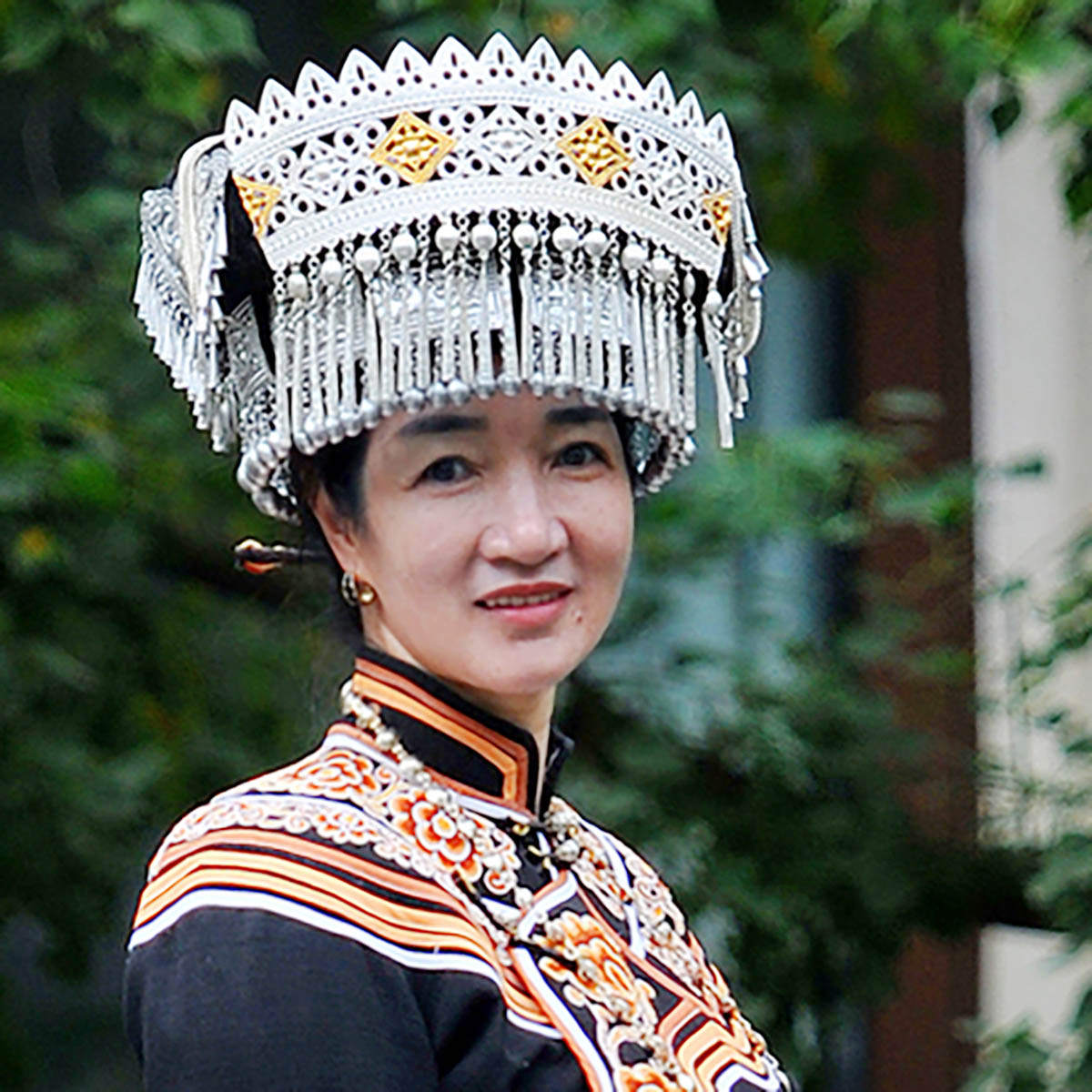
Ding Lanying, founder and chairman of Nanhua Colorful Yi Embroidery Cultural Communication Co., Ltd., vice chairman of Chuxiong Women's Yi Embroidery Association, and president of Mama Manufacturing Yunnan Chuxiong Inherited Yi Embroidery Cooperative.
Ding Lanying was born in May 1978 in a village in Nanhua County, Chuxiong, known for its four generations of passion for embroidery. Growing up immersed in the culture of embroidery, she developed a strong interest in Yi embroidery. As the fifth-generation inheritor of the embroidery family, she has dedicated over 40 years to studying and researching, mastering 72 stitching techniques of Yi embroidery, pattern design, color coordination, and the production process of Yi ethnic costumes. She has applied for three national patents and obtained one copyright. She has received face-to-face guidance from renowned experts in embroidery, including Professor Luo Jianjin from the United Nations, Professor Liang Xuefang from Tsinghua University's Academy of Fine Arts, Master Su Xianzhong from Fujian Craft Art, Professor Zheng Dedong from Southeast University's Art Department, and Master Miu Ligeng, a senior craft artist from Yunnan Province.
Over the years, she has visited over 100 elderly artists in Yi-inhabited areas, discovering four endangered embroidery stitching techniques: dazi embroidery, spiral embroidery, throwing flower embroidery, and winding needle embroidery. She has also researched and documented the traditional production processes of the Ma Street osmanthus hat costume, Tu Street camellia costume, and Wu Street fireweed linen costume. She has applied for design patents to protect these three sets of traditional costumes and obtained the copyright for the "Mayinghua" pattern. Her ethnic costumes and culturally creative products have participated in and won awards in provincial and state competitions. Several of her works have been collected by museums, and she has been awarded the title of "Best Ethnic Costume Designer."
Since 2014, Ding Lanying has been committed to realizing the mission of "developing thousand-year-old Yi embroidery, sharing the beauty of colorful Yi culture" and the core concept of "sharing the splendor of ethnic culture, sharing a happy life." She aims to create employment opportunities and increase income for rural women and individuals with disabilities in Nanhua County. She has pioneered a new development path of "intangible cultural heritage + market products + employment and prosperity," transforming from "finger-tip art" to "finger-tip economy" and further to "finger-tip industry." Her efforts have contributed to the enrichment of the local community, supporting rural revitalization. Regenerate response
In August 2015, she was awarded the title of "Leading Figure in China's Rural Tourism for Prosperity" by the National Tourism Administration of the People\'s Republic of China.
In November 2016, she was awarded the "Model Worker of Women's Contributions" in Yunnan Province by the Yunnan Women's Federation.
In December 2018, she was honored with the title of "Master Craftsman of Yi Ethnicity" by the People's Government of Chuxiong Prefecture.
In December 2018, she was granted the honorary title of "Master Craftsman of Embroidery Art in Yunnan Province" by the Yunnan Craft Art Industry Association.
In June 2019, she was recognized as the "Representative Master of Dazi Embroidery Technique in Yunnan and Chuxiong" by the Yunnan Folk Craft Heritage Association.
In 2022, she was awarded the title of "Chinese Intangible Cultural Heritage Annual Figure".
In 2023, she was selected for the "National Youth Intangible Cultural Heritage Inheritor Support Program."
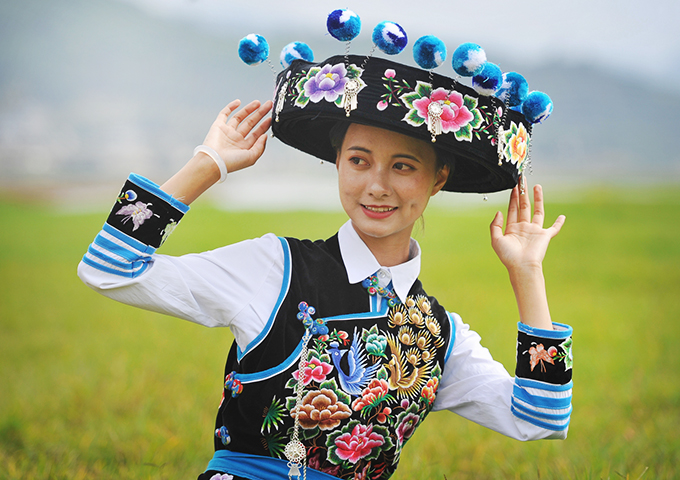
This costume is a representative traditional attire of the Yi ethnic group in Tujie Town, Nanhua County. Apart from this particular costume, there are hardly any other styles of ethnic clothing worn by the Yi people in this region. The clothing style is similar to that of other regions, featuring a five-piece ensemble: a white shirt, a black waistcoat, a square-shaped waistband, black trousers, and a headdress called a "dapangmao" or "dagaimao." Although the overall ensemble follows the traditional style found in other areas, each accessory differs from those worn in other regions. Firstly, the black trousers of this costume have three embroidered borders and two embroidered patterns, which is quite distinct from the more common style featuring a single embroidered border and pattern. The cuffs of the white shirt usually have one embroidered pattern without borders, and in this ensemble, four blue stripes are added. The waistcoat is typically worn with a straight collar and embroidered on both sides, while this particular set features a full embroidered pattern on the front, perfectly matched with the square-shaped waistband. The waistband helps accentuate the waist, providing a flattering effect for women and avoiding the drawback of the embroidered pattern on the chest being obscured by a long waistband. The headdress is made from a piece of black gauze wrapped around the head, with a size of about 40 centimeters, forming a large "dagaimao." The hat is adorned with tassel flowers made of yarn, and there are embroidered patterns or silver decorations on the brim. This headdress is a characteristic feature of middle-aged and elderly Yi women. Black is the main color in Yi culture, symbolizing simplicity, kindness, and good health.
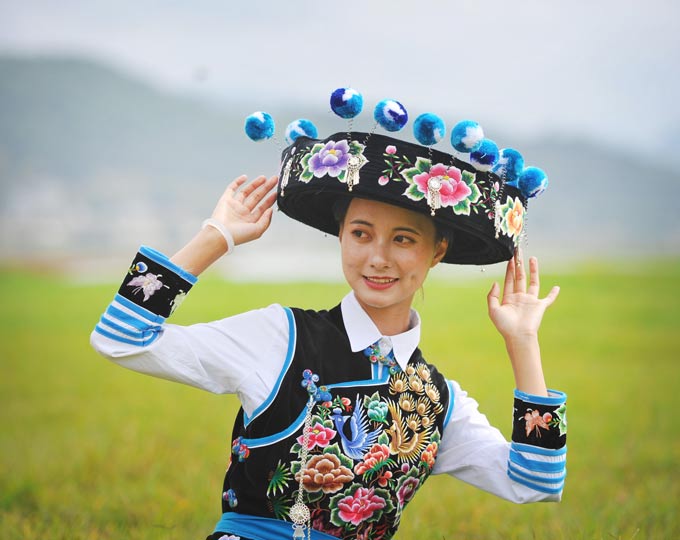
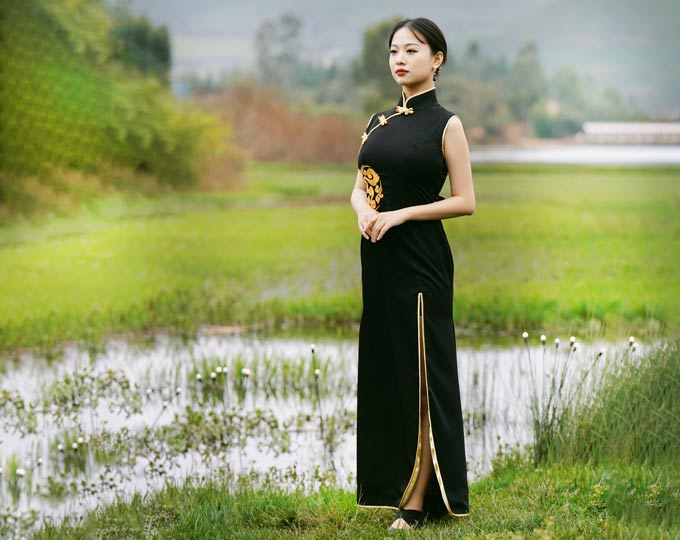
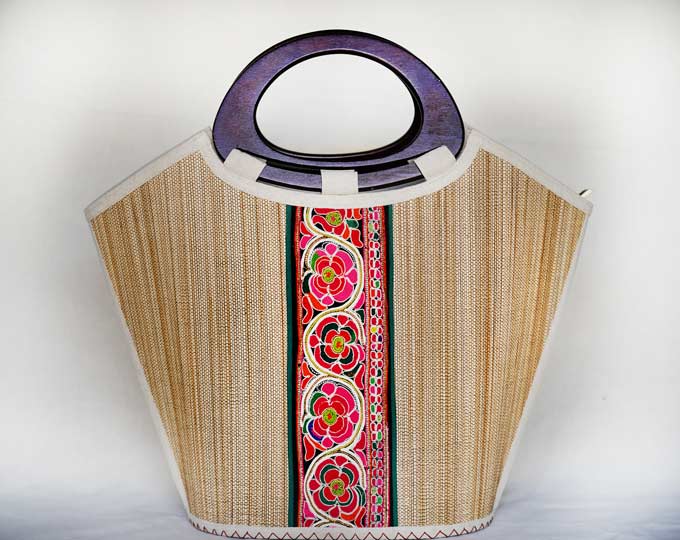
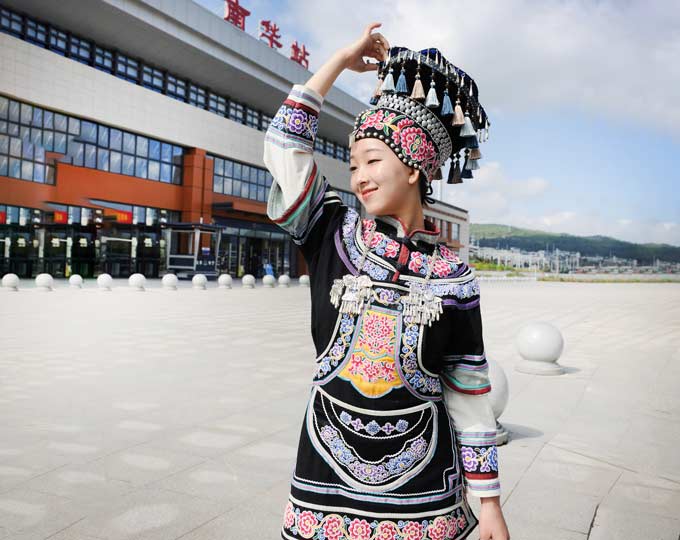
 17 views
17 views
 1
1
 Subscribe
Subscribe